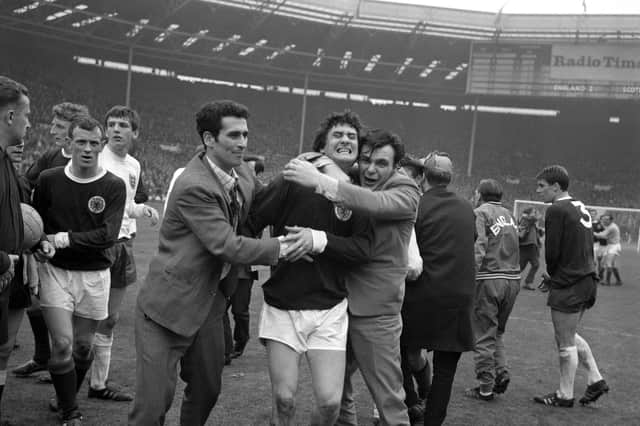And, looking back through the almanacs, it appears this David versus Goliath-esque spirit manifested itself most readily during one decade in particular: the 1960s.
As we mark 35 years this week since the untimely passing of legendary Celtic boss Jock Stein at Cardiff’s Ninian Park, it is fitting that we recall one of this country’s finest sporting achievements, that being the victory by eleven mostly local Glasgow lads over a star-speckled Inter Milan in the 1967 European Cup Final.
For the Scottish football history enthusiast, it should be noted that 1967 was something of a vintage year – save for the unceremonious loss of one of the Scottish League’s founding members, Third Lanark FC, who, rather against the tide of footballing successes that year, went out of business altogether.
Celtic, as touched upon, were crowned champions of Europe, the first non-Latin football team to achieve such an accolade, while their great rivals Rangers were within a whisker of European glory themselves, losing out narrowly by one goal to nil to Bayern Munich in the Cup Winners Cup.
Worth a mention, too, are Dundee United. Tayside’s Terrors marked their debut in European competition in the 1966-67 season by eliminating Fairs Cup holders Barcelona.
It was also a season in which one of our nation’s most celebrated footballing victories arrived. ‘Tanner ba’’ era Scotland’s unlikely 3-2 Wembley win over World Cup holders and biggest rivals England in the British Home Championships was enough for many Scots supporters to declare their boys the unofficial greatest team on earth.
Away from football, Scotland was also upsetting the odds to achieve astonishing things.
Motor racing was filled with top Scottish talent. The versatile Jim Clark was tearing up tarmac around the globe, winning two World Championships in 1963 and another in 1965, alongside the Indianapolis 500. At the time of his tragic death aged just 32 in a racing accident at Hockenheim in 1968, Clark had racked up more Grand Prix wins and pole positions than any other driver.
The decade also saw the emergence of the legendary Jackie Stewart, who earned the first of three Formula One world titles in 1969.
In boxing, the likes of Walter McGowan and Ken Buchanan were steadily earning respect. After competing almost exclusively at British and Commonwealth level, the diminutive McGowan claimed world honours in 1966, defeating long-time rival Salvatore Burruni to lift the WBC flyweight belt.
New kid on the block Ken Buchanan, meanwhile, also packed a punch, earning a British lightweight title against English fighter Maurice Cullen. Buchanan would go on to become world champion at the start of the following decade.
Scotland was also performing strongly in the world of athletics, producing the likes of champion marathon runners Jim Alder and Dale Greig, who made history by setting the inaugural recognised IAAF women’s word best.
Rosemary Stirling, another female pioneer, notched various gold medals in the 400 and 800 metre events on her way to becoming the first Scotswoman to win track gold at the 1970 Commonwealth Games in Edinburgh.
In December 1969, Scotland recorded a memorable and rare win against South Africa at Murrayfield, defeating the Springboks 6-3 in what was the first test match of their 1969-70 rugby union tour of Britain and Ireland.
Taking place during South Africa's apartheid era, the game was contested in controversial circumstances. At Murrayfield, campaigners waving "Stop the Seventy Tour" banners, and led by future British prime minister Gordon Brown, protested inside and outside the ground.
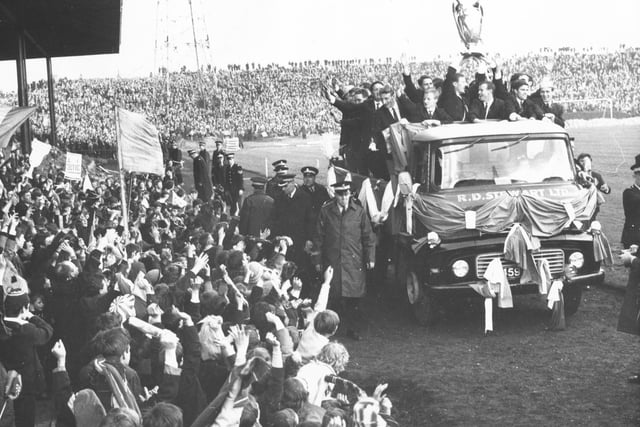
1. Lisbon Lions
Celtic show off the European Cup to the Parkhead faithful in 1967. Photo: TSPL
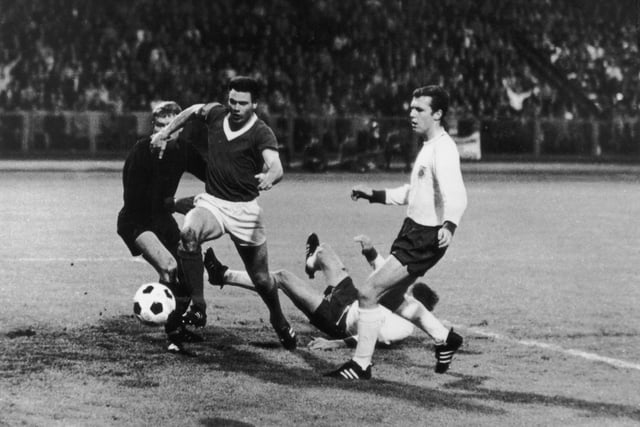
2. Close but no cigar
Bayern Munich beat Glasgow Rangers by one goal to nil in the European Cup Winners Cup at Nuremberg, 31st May 1967. (Photo by Keystone/Hulton Archive/Getty Images) Photo: Keystone
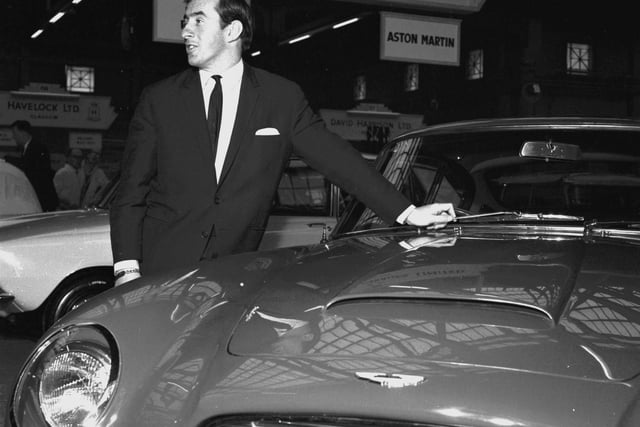
3. Jackie Stewart at Scottish Motor Show
Racing driver Jackie Stewart stands beside an Aston Martin DB6 at the Scottish Motor Show in the Kelvin Hall, Glasgow, November 1965 Photo: Allan Milligan
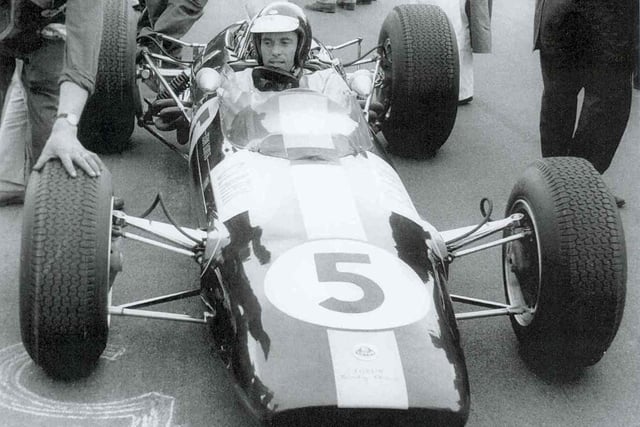
4. Jim Clark British GP 1965
The versatile Jim Clark was tearing up tarmac around the globe, winning two World Championships in 1963 and another in 1965, alongside the Indianapolis 500. Photo: Third Party
